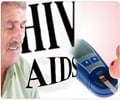Patients with diabetes and coronary heart disease can improve their health conditions by using a low-cost text-messaging program.
- Uplifting texts could help patients with diabetes to cope up with below aaverage blood sugar level
- Diabetes medication can help us to keep it under control
Read More..
"Capitalising on the exponential growth in mobile phone usage over the past decade, a simple text-messaging program could increase the reach of diabetes self-management support," she added. "It may provide a means to address the burgeoning healthcare demand-capacity imbalance better."
CHAT-DM enrolled 502 patients from 34 clinics in China. In addition to usual care, patients were randomly assigned to the text messaging intervention or a control group for six months. The intervention group received six messages per week, at random times of day, from an automated system set up by the researchers. Topics included diabetes and coronary heart disease, glucose monitoring and control, blood pressure control, medication adherence, physical activity, and lifestyle recommendations on diet, foot care, and emotional management. The control group received two thank you text messages per month.
At six months, glycated blood haemoglobin (3) (HbA1c) was significantly lower in the intervention group compared to control group (6.7% versus 7.2%). On average, HbA1c fell by 0.2% in the intervention group and rose by 0.1% in the control group - a difference of 0.3% between groups.
To reduce the complications of diabetes, the target HbA1c is less than 7%. Significantly more participants in the intervention group achieved the target (69.3%) compared to the control group (52.6%). The change in fasting blood glucose was larger in the intervention, compared to control, group (-0.5 versus 0.1 mmol/L, respectively).
While the study did not measure which text messages were most effective, Dr. Huo said: "Lifestyle advice such as strict dietary control may have contributed to glycaemic improvements, together with reminders to monitor blood glucose regularly. The messages were designed to provide information and motivation and help patients set goals and manage stress."
Dr. Huo noted that sending text messages to patients in the intervention group with low baseline HbA1c was safe and did not result in a further reduction in blood sugar levels or hypoglycemia.
She concluded: "This study has important public health implications since patients with coronary heart disease and diabetes are at high risk for diabetes-related complications and death; achieving glycaemic control is a central pillar of high-quality care. Further investigation is needed, but this non-pharmacological intervention could serve as a powerful tool to transform worldwide delivery of health services and improve health across diverse populations."
Examples of text messages sent to the intervention group:
- Diabetes is not terrible, and there are many things you can do to prevent problems from diabetes, such as monitoring blood glucose, watching your diet, keeping fit, and taking pills regularly.
- Afraid of testing blood glucose because it hurts? Try to test on the sides of your fingertips or rotate your fingers, which can help to minimize pain.
- Taking diabetes medications or injecting insulin regularly can help control your blood glucose level and forgetting to take your medication? Try to set a repeating alarm on your cell phone to remind you to take medication or insulin injection.
- Try brisk walking - a convenient, safe, and cost-effective way of exercising! It's good for your heart and will help control blood glucose.
Examples of text messages sent to the control group:
- Thank you for participating in our study!
- We appreciate your participation in this study. Please let us know when you change the phone number.
Source-Eurekalert
















